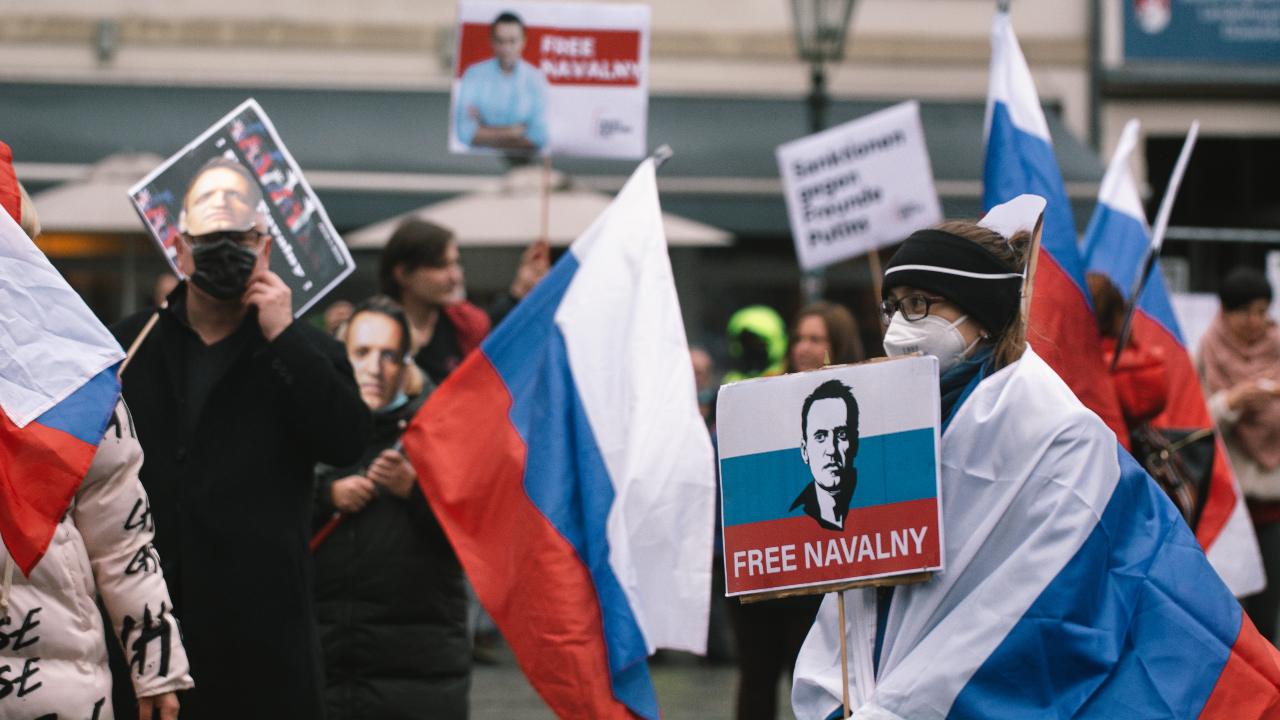As the Western gaze is fixed on an impending invasion — or lack thereof — in Eastern Ukraine, some 185 km to the east of Moscow the incarcerated opposition leader and anti-corruption activist Alexei Navalny faces the possibility of another 15 years imprisonment in the notorious Russian prison system.
Rather than being escorted to Moscow to face this new trial, a judge from the city’s Lefortovo Court traveled to the IK-2 penal colony in Pokrov, close to the “golden ring” city of Vladimir, according to spokesperson Kira Yarmysh. The new criminal case was filed on February 3 and included four counts of fraud and one count of contempt of court, a spokesperson told Tass.
The Anti-Corruption Foundation (FBK) established by Navalny in 2011 said that he faces up to 15 years in prison on the first charge, and a hefty fine or six months in jail for the second. He is currently serving a 30-month sentence.
“And this is in addition to the term that he is currently illegally serving, because Putin disliked his investigations,” FBK said in a statement published online. FBK was “recognized” as an extremist organization in June 2021, and two months later a Moscow court refused to overturn the classification.
Navalny has already faced a slew of charges over the years, many of which he says are trumped up, including an accusation of embezzlement in 2014, as well as allegedly violating the terms of his suspended prison sentence, and suspected money laundering, as well as a case alleging he misspent donations.
Navalny has long been at risk from a judicial system that follows instructions from the executive branch, but allies say the risk that he may come to harm is growing. “Any potential military action of any scale puts Navalny’s life at greater risk yet,” Maria Pevchikh warned on Twitter on February 13. “The probability of him being killed in prison, will increase exponentially depending on what happens in Ukraine. The odds are pretty bad already.”
The Kremlin has shown that it wants Navalny silenced or dead — he was targeted in a bumbled nerve agent attack by the FSB political police, and in August 2020 was airlifted to a German hospital and only barely survived.
Investigators from Bellingcat subsequently revealed a long-running FSB operation to trail Navalny. “Throughout 2017, and again in 2019 and 2020, FSB operatives from a clandestine unit specialized in working with poisonous substances shadowed Navalny during his trips across Russia,” the investigative site noted after his attempted murder.
The cause of the Kremlin’s fury is clear. Navalny has been a protest figurehead for years, with his 2017 expose of then-Prime Minister Dmitry Medvedev’s extravagant lifestyle causing youngsters to flock to the streets. More recently, he has uncovered Putin’s multibillionaire lifestyle. especially through his FBK video about Putin’s grandiose $1.4bn palace — a residence on the Black Sea coast — in January 2021. It has since recorded an extraordinary 120,000,000-plus views.
He is not alone; Putin’s campaign against critics has escalated this past year — in December, for example, the Supreme Court closed the Memorial human rights group on punitive and politically motivated charges. Independent media organizations are also being harassed.
Navalny has been harshly treated, as his worryingly gaunt appearance in court on February 15 showed. During the course of his past year in prison (he was taken into custody in January last year) he has gone on hunger strike, beginning in late March, and was later transferred to a prison hospital to recover. He made a public appearance later in the year during which he appeared unwell. “I am a creepy skeleton,” he declared during an appeal via video link. He also described his surprise that modern Russia contained concentration camps, a nod towards the inhuman treatment doled out at the IK-2 penal colony and other so-called red prisons.
Meanwhile, access to the latest trial seems as patchy as the authorities can make it. Journalists are confined to a separate room and follow events via a streaming service. “The screen is tiny, the sound is horrible, and sometimes it cuts off entirely,” Pevchikh wrote. Sparse video footage shared online showed Navalny with his arm around his wife, Yulia Navalnaya, and flanked by prison guards.
Navalnaya has been similarly outspoken about the farcical nature of her husband’s detention as well as the attempts to deny access to his trial.
“People in the Kremlin are so afraid of him that he will become the first person in Russia to be tried right there in prison,” she wrote on Instagram on Tuesday. “They want to hide it from everyone, from supporters, from journalists . . . they are afraid to hold the trial in Moscow,” she said. According to a Novaya Gazeta reporter, Navalny was told that he couldn’t be heard over the speakers. “If I talk louder, they will tell me that I not only hold the court in contempt, but that I am being intimidated,” he responded.
“Naturally, all this is done so that the journalists and the general public can’t access the trial, and everything can go as quietly as possible,” said Pevchikh. “Maybe then people won’t notice” The court reconvenes on February 21.
Aliide Naylor is the author of ‘The Shadow in the East’ (Bloomsbury, 2020). She lived in Russia for several years and is now based in London, working as a journalist, editor and translator.




